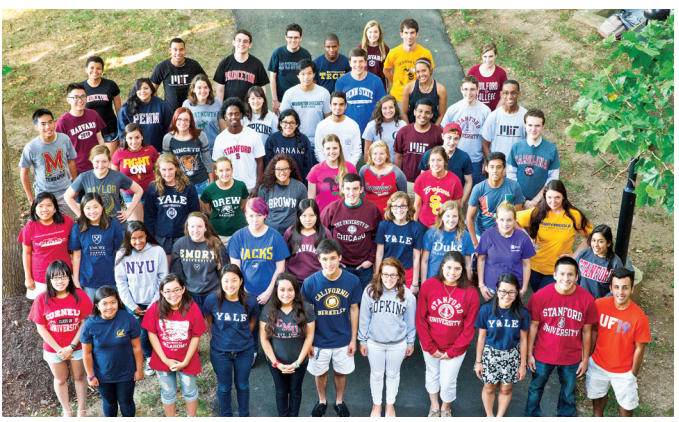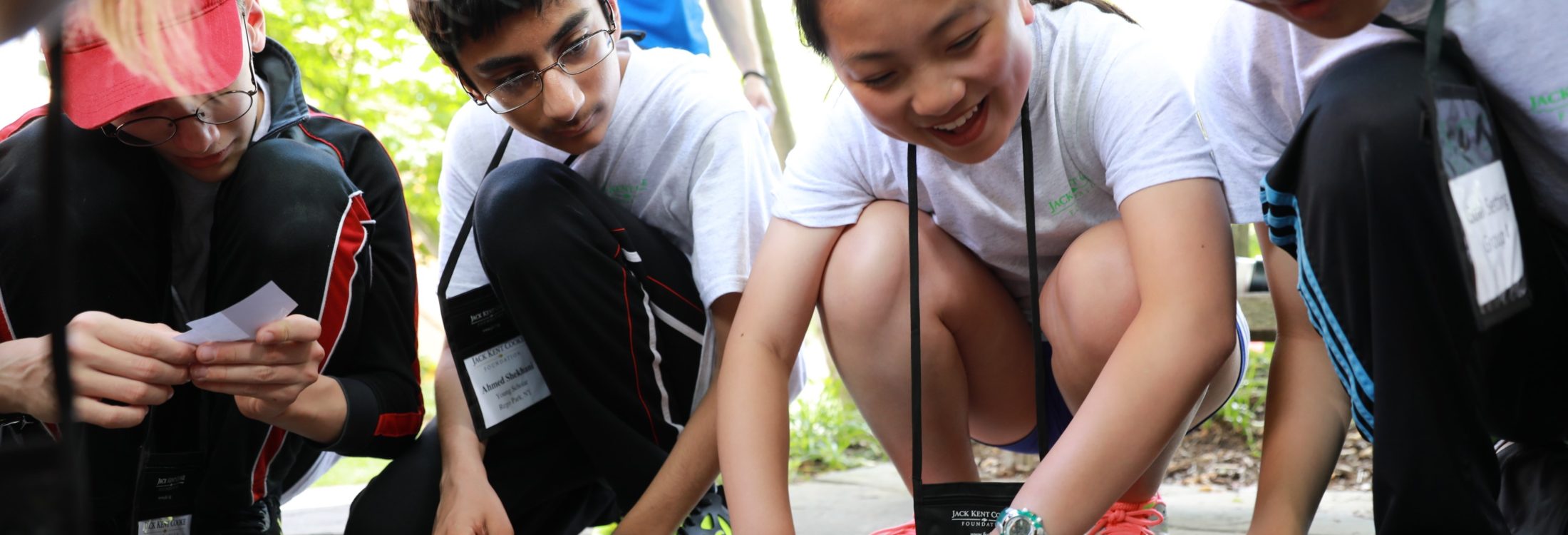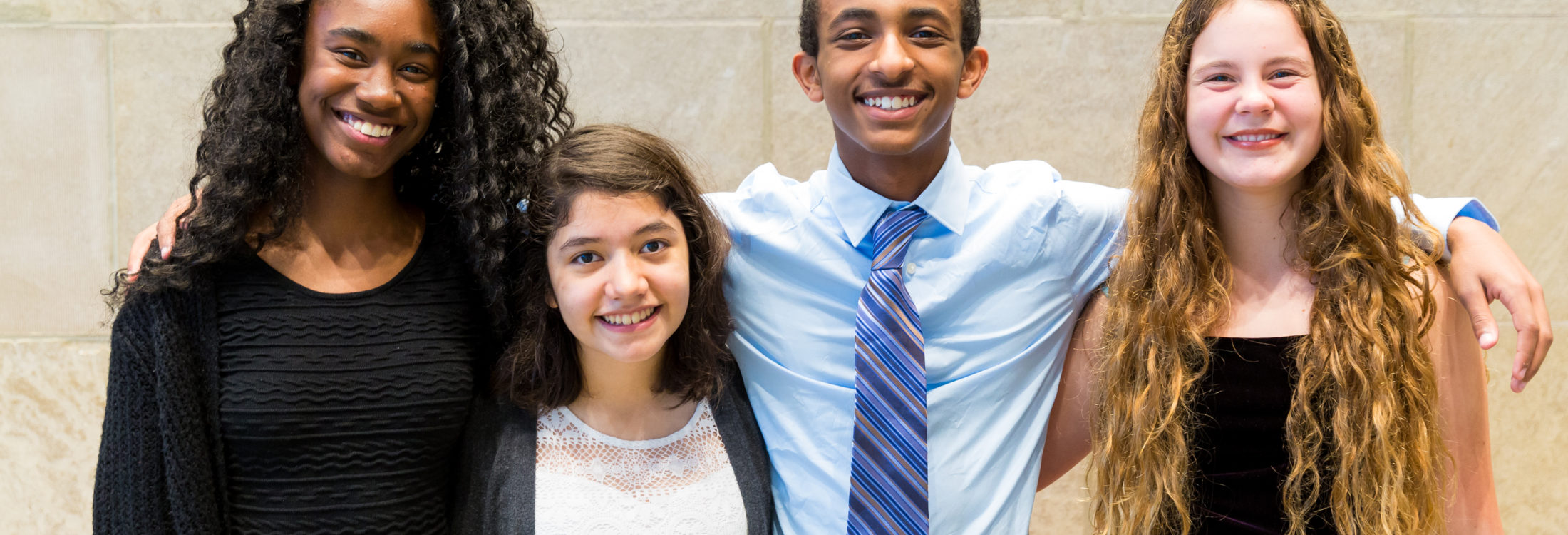Young Scholars Handbook 2018
A Message Especially for Parents and Guardians
Congratulations on your acceptance into the
Cooke Foundation Young Scholars Program. You are
now a part of a community of extraordinary scholars
around the world benefitting from Jack Kent Cooke’s
legacy. Please take the time to read this handbook
with your family.
Parents,
We know that your child has earned the achievement of becoming a Cooke Scholar in large part because of you and your family’s support. Thank you for valuing education, holding your scholar to high expectations, and staying involved in his/her learning.
As we partner together, you can expect your scholar’s educational adviser to keep you informed of important activities, due dates, and scholar responsibilities. We’ll seek your input on decisions, answer your questions so that you can be an informed partner, and explain why we are making the decisions that we are making on behalf of your child. Your child’s educational adviser will seek to get to know you during in-person visits and calls, and will team up with you in interactions with school officials, activity leaders, and other stakeholders.
Here are twelve ways for you to partner with us:
- Encourage your child to “think big” and use the Young Scholars Program as an opportunity to explore new interests and develop his/her talents
- Ask your child every couple of weeks if he/she has communicated with his/her educational adviser
- Talk with your child’s educational adviser about appropriate course placement for your child
- Help your child stay on top of assignments, manage time wisely, and turn in work on time
- Be sure your child contacts his/her educational adviser at the first signs of trouble with a course so that they can work together on a solution
- Let us know if your Young Scholar is experiencing social or emotional struggles
- Have your child communicate goals and ideas for Individualized Learning Plan (ILP) opportunities to his/her educational adviser
- Celebrate your Young Scholar’s academic, extracurricular, and personal accomplishments with his/her educational adviser
- Remind your child that he/she is responsible for informing us immediately of any disciplinary actions or potential violations
- Alert your child’s educational adviser to any significant changes in contact information, employment status, or family circumstances
- Check that your child submits his/her school-issued report card promptly upon request
- Submit your program renewals, forms, including tax forms and supporting documents, during the renewal process in a timely manner
We look forward to collaborating with you to help your Young Scholar develop throughout high school and achieve his/ her dreams.
The Young Scholars Team
About the Cooke Foundation
Mission
Advancing the education of exceptionally promising students who have financial need.
Programs
Since its founding in 2000, the foundation has provided scholarships, comprehensive advising, and support services to nearly 2,300 students from 8th grade through graduate school. The foundation has also invested over $97 million in grants to organizations that serve such students.
YOUNG SCHOLARS PROGRAM
Through its Young Scholars Program, the Cooke Foundation provides comprehensive educational advising and financial support to high-achieving middle and high school students. Young Scholars participate in learning enrichment experiences, individually and as a community, to help them achieve their academic and talent goals as they prepare to get into and thrive at the nation’s best colleges.
COLLEGE SCHOLARSHIP PROGRAM
Through the College Scholarship Program, the Cooke Foundation offers the opportunity to apply for financial support for college up to $40,000 a year for four years, along with advising and internship support to qualified applicants.
UNDERGRADUATE TRANSFER SCHOLARSHIP
The Undergraduate Transfer Program enables outstanding community college students to transfer to four-year colleges or universities with financial support of up to $40,000 per year, plus advising and internship support, to complete their bachelor’s degrees.
GRADUATE SCHOLARSHIP
The Cooke Foundation awards high-performing undergraduate scholars graduate scholarships to pursue advanced degrees at the graduate level.
GRANTS AND RESEARCH
The Cooke Foundation awards grants to innovative, high-impact initiatives that benefit academically talented students who have financial need. In addition, the foundation produces and funds mission-related research to highlight educational challenges and solutions.
Mr. Cooke: Life Chronology
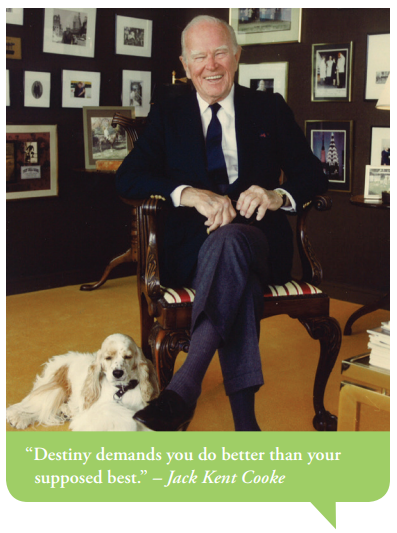 Jack Kent Cooke was by all accounts an extraordinary man. As a young man, Mr. Cooke was an athlete and a musician, with a love for ice hockey, the saxophone, and the clarinet. He dreamed of pursuing a formal education, but that dream was cut short when he left high school during the Great Depression to work full time to help support his family.
Jack Kent Cooke was by all accounts an extraordinary man. As a young man, Mr. Cooke was an athlete and a musician, with a love for ice hockey, the saxophone, and the clarinet. He dreamed of pursuing a formal education, but that dream was cut short when he left high school during the Great Depression to work full time to help support his family.
Nonetheless, Mr. Cooke believed education was a life-long pursuit. He was a passionate student his entire life and was knowledgeable in fields as diverse as literature, music, sports, and architecture.
When he died in 1997, Mr. Cooke left the bulk of his fortune to establish the Cooke Foundation and provide remarkable students with the chance to soar.
Young Scholars by the Numbers
We know that some of you love numbers, so below is a quick snapshot of your scholar community.
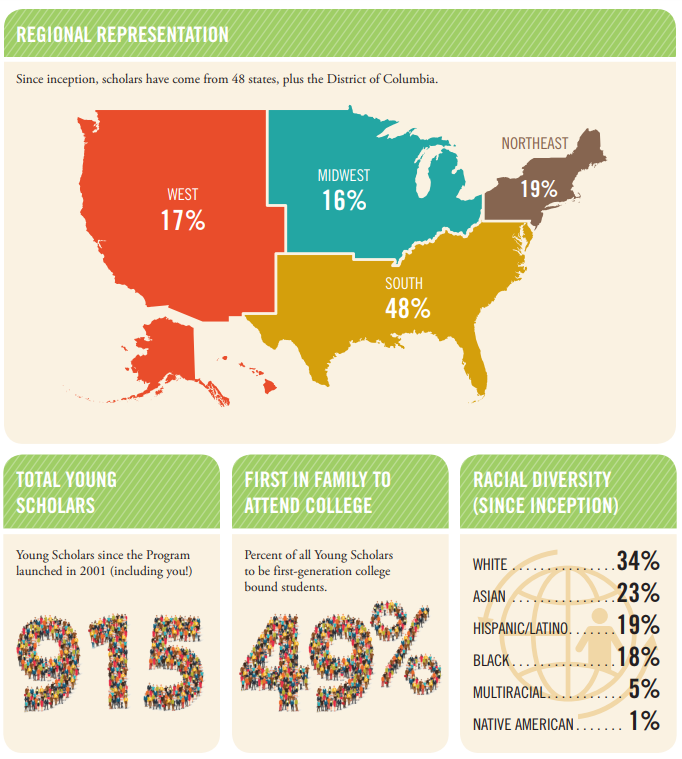
Young Scholars Program Support
The Young Scholars Program consists of six components supporting you throughout high school.
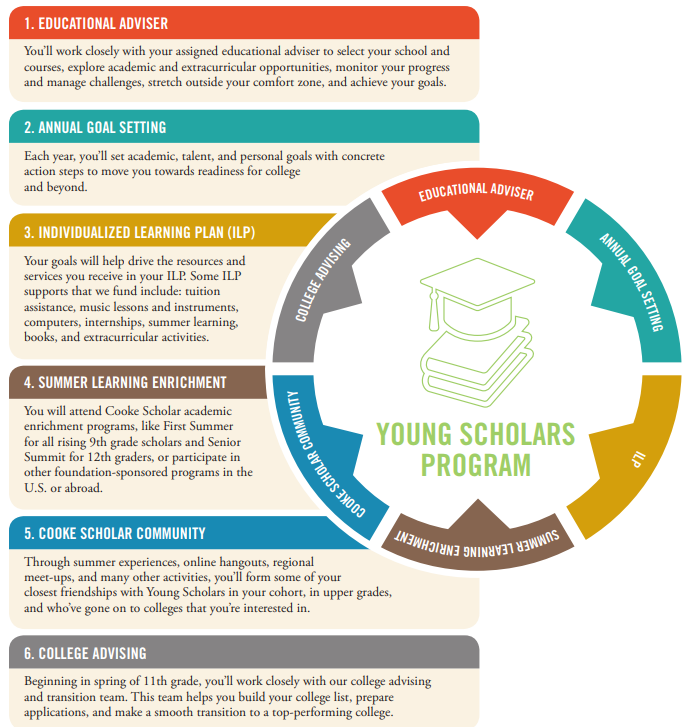
What to Expect from Your Educational Adviser
You have been assigned an educational adviser who works closely with a group of approximately 35 Young Scholars in grades eight to twelve. You can expect your educational adviser to collaborate with you and your family, providing options, asking questions, and offering input to help you:
- Select a high school
- Plan an appropriately challenging four-year academic course load
- Improve your time management and study skills
- Set academic, talent, and personal goals each year
- Construct a yearly Individualized Learning Plan (ILP) that connects services to your goals
- Research educational opportunities and services
- Develop your talents and expertise
- Navigate the educational system
- Troubleshoot challenges
- Achieve your academic and extracurricular goals
- Prepare to thrive in our nation’s top-performing colleges
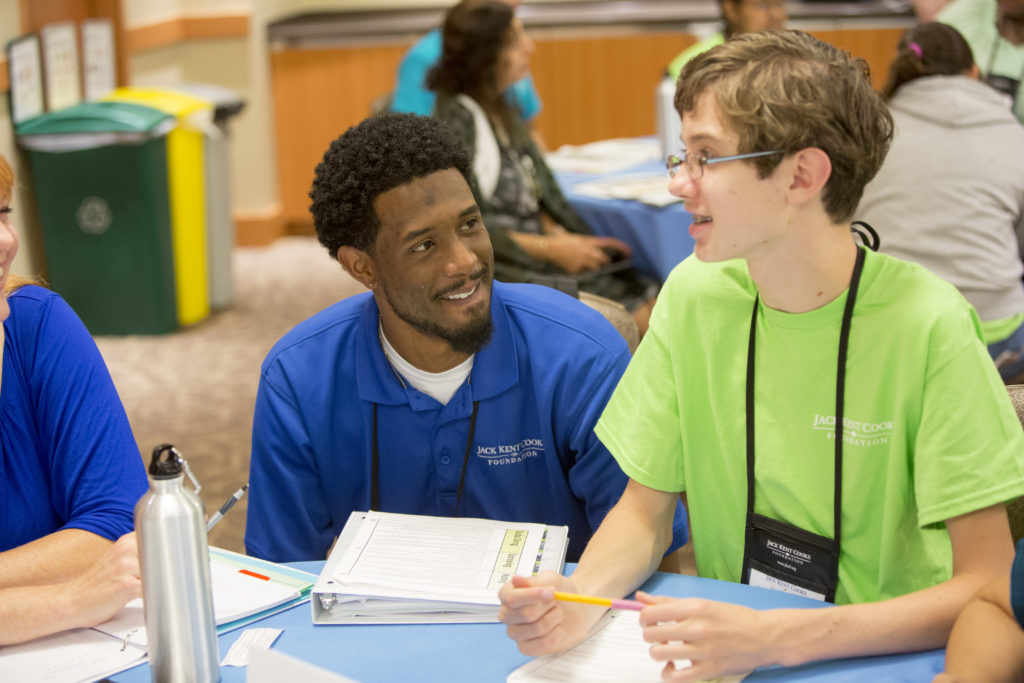
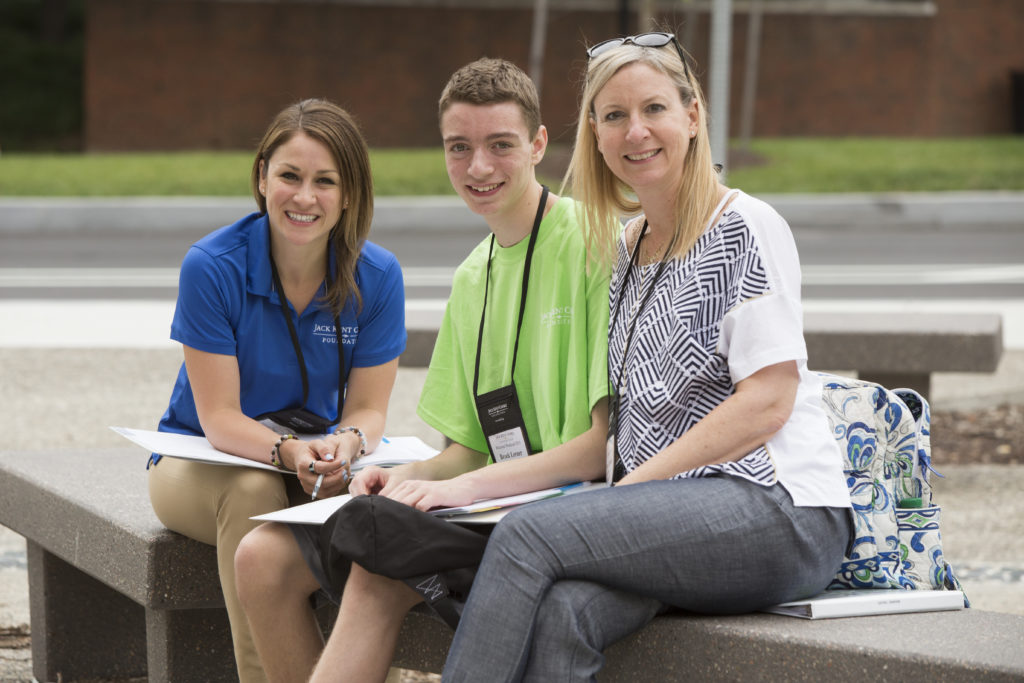
Cooke Scholar Responsibilities
THINK BIG. WORK HARD. ACHIEVE.
Our Think Big goal for all Cooke Scholars is that you will go on to thrive at our nation’s top-performing colleges and lead fulfilling lives through which you make significant contributions in whatever you choose to do.
We focus our programming, advising, and services on five Critical Actions that scholars engage in throughout their journey to thrive in high school, college, and beyond.
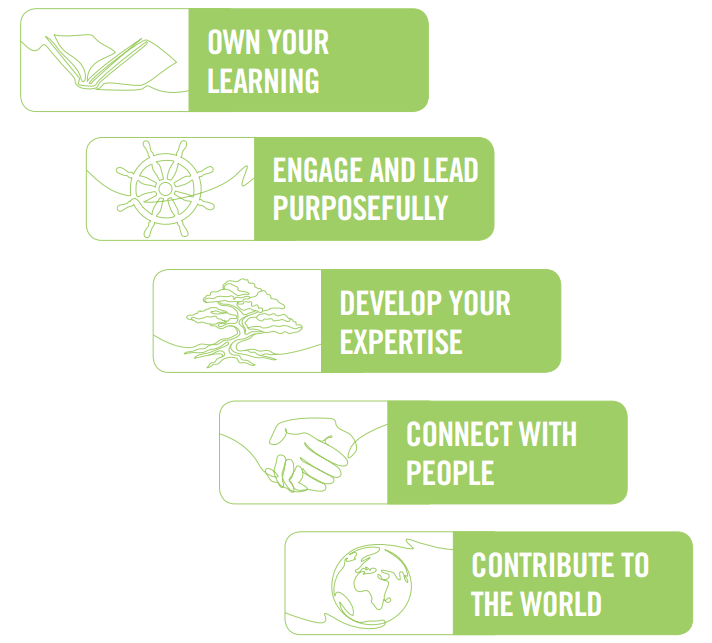
Own Your Learning
YOUNG SCHOLARS RESPONSIBILITIES
Cooke Young Scholars know that being seen as smart is not as valuable as working hard to learn and grow every day. It is up to you to deliberately pursue knowledge and skills. What does this mean? Take control of your learning. Address obstacles that come your way. Focus your energy to get the most out of your educational opportunities. Throughout the Young Scholars Program, your responsibilities to own your learning include the following:
- Choose a high school that will enable you to grow and stretch. Use our resources for how to conduct an effective school search. Talk with your educational adviser about what factors matter most for your educational journey.
- Develop a four-year plan to become college-ready. Your educational adviser will work with you to connect your goals, courses, extracurricular activities, and summer enrichment experiences through a coordinated blueprint for high school that you will revisit each year.
- Challenge yourself with appropriately rigorous courses. Your curriculum should prepare you to become a successful student at a top-performing college. Courses may include honors, Advanced Placement (AP), International Baccalaureate (IB), and/or college-level classes.
- Develop your research, writing, collaboration, and critical reasoning skills. Regardless of the field or industry you wish to pursue, you will need these skills to be an effective leader.
- Participate in competitions, contests, science fairs, mentorships, and other out-of-school opportunities to gain “real world” experiences as well as constructive feedback beyond the classroom.
- Engage fully in summer enrichment learning experiences.
Your educational adviser will help you to choose schools and courses that prepare you for top-performing colleges. The Foundation expects all Young Scholars to maintain a strong academic record of As and Bs in an unweighted grade point average calculation.
You will be asked to submit grades, standardized test scores, and program documents in a timely manner in order to maintain your scholarship. We review your academic progress so that we may provide useful educational advising.
Should you experience difficulties, contact your educational adviser as early as possible. We can assist you in accessing tutoring or other supports.
Your educational adviser will work with you, your family, and your school throughout your journey.

COOKE COMMUNITY SUMMER LEARNING EXPERIENCES
The Cooke Community Summer Experiences are high-quality summer learning programs, custom tailored for Cooke Young Scholars. The experiences include:
-
- Challenging academics
- Cooke Scholar community building
- Hands-on projects and mentorship
- Leadership and service development
- College admissions and success planning
- Time to reflect on what you are learning about yourself and your future
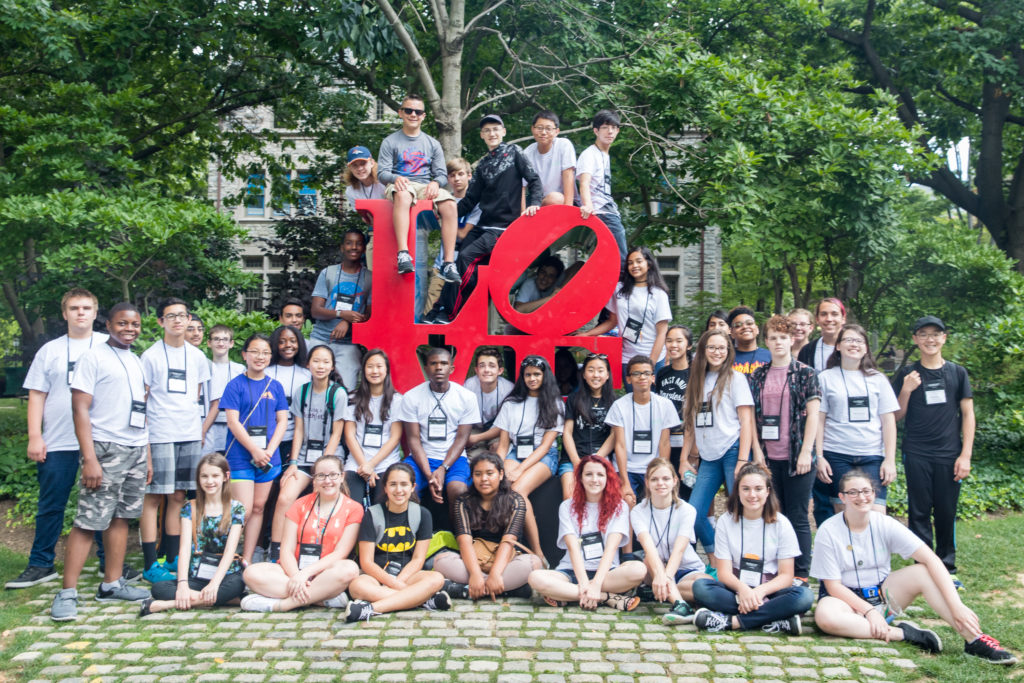
1. FIRST SUMMER
(University of Pennsylvania, Philadelphia, PA) A required three-week, project-based academic enrichment program for all rising high school ninth graders. Scholars work together to make a difference on an issue of importance to them and their communities. They participate in interactive academic enrichment classes of their choice (including business, statistics, coding, law, and writing) and build the skills necessary to become change agents in their communities.

2. AMERICAN COLLEGE OF GREECE – LEADERSHIP ACADEMY
(American College of Greece, Athens, Greece) A global leadership experience for Young Scholars and Greek high school students which focuses on developing aware, responsible and inspired individuals, within a constantly shifting and complex social context. Accepts 15-20 Young Scholars.
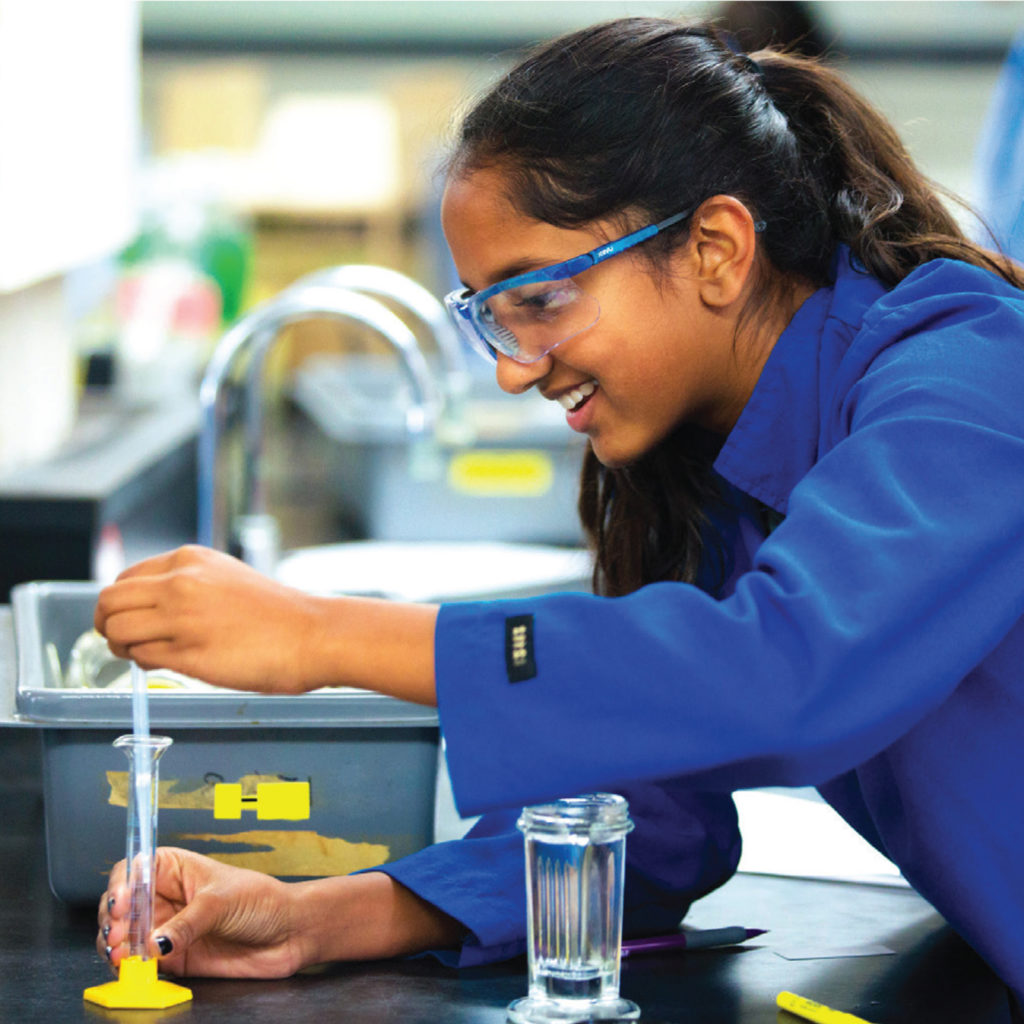
3. UNIVERSITY OF CALIFORNIA, SANTA BARBARA – RESEARCH ACADEMY
(University of California, Santa Barbara, Santa Barbara, CA) An intensive academic and research experience in STEM, humanities, and/or social sciences taught by instructors who are research experts in these disciplines. Students work in small groups to develop their own research question. Accepts approximately 15-20 Young Scholars.
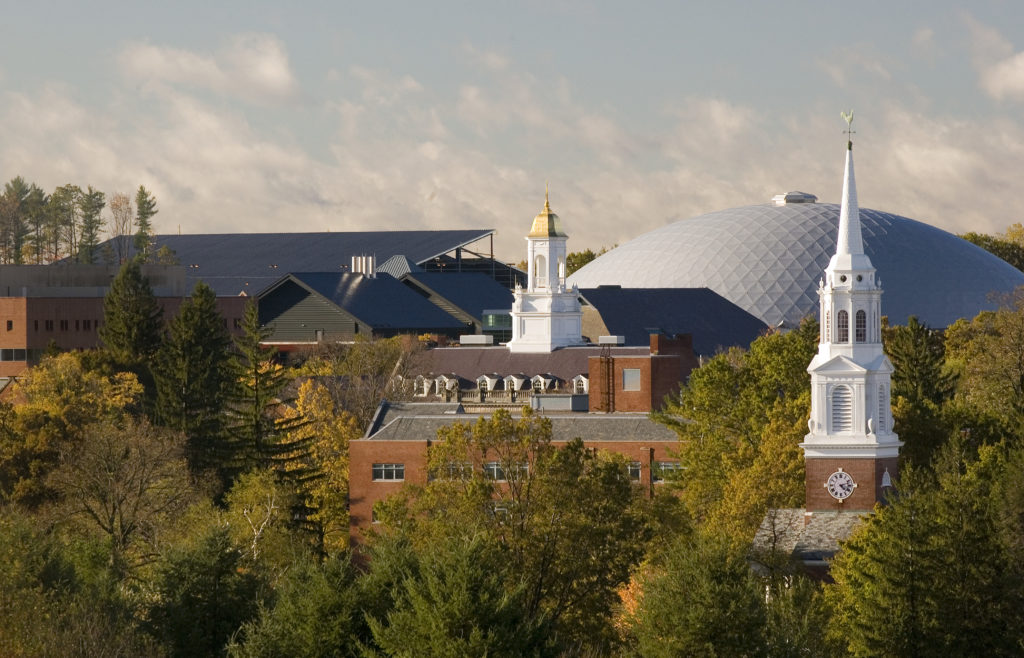
4. SENIOR SUMMIT
(University of Connecticut, Storrs, CT) A research-based three-week residential program required for all rising Young Scholar seniors. Scholars work as members of an advanced-level research team (two – three scholars per team) in a self-selected mentorship site on campus. All scholars present their work at a final showcase. Cooke educational advisers provide intensive, individualized college counseling throughout the program.
Engage and Lead Purposefully
Young Scholars go beyond the classroom to explore and develop their passions in academics, fine arts, music, drama, civic pursuits, athletics, and other disciplines. Does this mean that you should sign up for every extracurricular activity or for clubs just because they will look good on your resume? Absolutely not. You should commit to talent and interest areas that matter to you. To engage and lead purposefully:
- Explore a breadth of activities within and outside of your school. Try out some new and different experiences, especially during your first two years of high school. Look into community-based organizations or even broader opportunities to meet others who share your interests.
- Step forward to lead and contribute in meaningful ways. As you discover activities you care about, invest your time and energy through leadership efforts. It is hard to lead, but it is an important way to learn.
- Give back through service. Ask yourself: what do others need and how can I serve?
- Advocate for causes that mean something to you. Educate yourself on the issues, seek to understand varying perspectives, analyze causes and response strategies, and collaborate with others to advocate effectively against unjust policies and practices.
- Stick with your commitments. While we encourage you to think big, it is important that you develop a well-balanced plan that energizes you. Be sure not to overload. You are expected to uphold your chosen commitments.
Your educational adviser will work with you each year to set goals for academic and extracurricular pursuits and determine which activities the Cooke Foundation will include in your ILP funding.
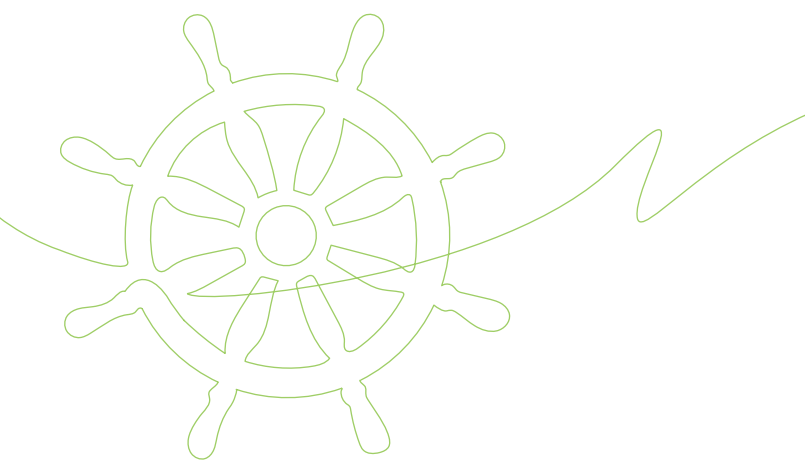
Develop Your Expertise
High school is a time for you to challenge yourself to vigorously pursue excellence in something. Take the risk of committing yourself to work hard to reach an achievement that you find fulfilling. Maybe you want to learn all there is to know about mosquitoes. Or, you want to take your curiosity about aerospace engineering and go for your pilot’s license or build a hover craft. Maybe you’ll edit a collection of your poetry or maybe you’ll become a chess master. Or, you’ll combine your interests in piano and engineering and build a pipe organ. These are all things that have distinguished Cooke Young Scholars over the years. What might be your specialty?
Why does this matter? Striving to achieve an accomplishment taps into your grit to stay focused, overcome obstacles, push through learning curves, stretch outside your comfort zone, and take honest stock of your strengths and challenges.

Throughout the Young Scholars Program, you have the opportunity to develop your expertise in many ways. We encourage you to:
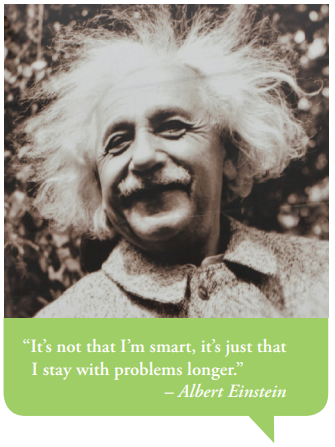
- Set SMART goals (specific, measurable, attainable, realistic, timely) each year with your educational adviser and connect ILP opportunities to support you in achieving your goals. Your goals should build upon each other over the course of your four-year plan. And while they should be realistic, your goals should definitely inspire and challenge you.
- Pursue learning experiences beyond the traditional setting. That means if you love math, then you join a local math circle, compete in the math Olympiad, find a math mentor at a local college, etc. Whatever your interest, you will learn a lot about your discipline and yourself by engaging in regional, national, and virtual mentorships, research communities, competitions, fairs, showcases, performances, master classes, and other opportunities to connect with like-minded peers.
- Engage in internships and mentorships to learn from professionals. You can take advantage of several summer program experiences, including project-based mentoring at University of California, Santa Barbara and Cooke Senior Summit at University of Connecticut.
- Share your emerging expertise with others through publications, performances, presentations, and service activities.
Your educational adviser can assist you in identifying and applying for opportunities that will aid you in developing your expertise.
Connect with People
A person can learn a lot from reading books, perusing websites, and taking courses. But, oftentimes, the real magic of what you learn comes from connecting with other people – by asking questions, being curious, seeking to understand, and offering to give of your services. You have a responsibility as a member of the Young Scholar community to connect with people in meaningful ways:
- Maintain close connection with the Cooke Foundation. You are expected to communicate with your educational adviser via phone, video chat, and/or emails at least monthly. Let your adviser know when things are going well or not so well. Ongoing communication helps build a stronger understanding between you and your adviser, leading to more meaningful educational counseling and opportunities.
- Engage in planning your adviser visit. During your time in the program, your adviser will visit with you in person in your home community and/or at your boarding school. The purpose of these visits is for your educational adviser to better understand you and how your family, school, and other key members of your life support your goals. In addition, you will spend time with your adviser and foundation staff at Welcome Weekend, Senior Summit, and other summer learning programs.
- Connect with other Cooke Scholars. You will meet all Young Scholars in your cohort at Welcome Weekend, which takes place in late June, before you enter high school. Welcome Weekend brings together scholars and parents/guardians on a college campus to learn more about the Young Scholar Program, meet the Cooke Foundation staff, and prepare for high school.
- Participate fully in online hangouts. As part of your regular communications with your educational adviser, you will participate in several small group video conferencing “hangouts” per year with other scholars in your grade. These online hangouts are intended to give you a space to talk with fellow Young Scholars about issues relevant to personal and academic development and career exploration.
- Make the most of your summer experiences. Each summer you will have the opportunity to spend time learning with Young Scholars through Cooke Foundation-sponsored residential programs designed with our Think Big goal and Critical Actions in mind.

We encourage scholars to stay in touch with Young Scholar peers to provide and receive support as you each challenge yourselves to try new experiences and learn to your fullest potential. We can assist you in meeting Cooke Scholars and alumni from any of our programs who may share similar academic, talent, or professional interests. You may want to gather school advice via an email exchange, gain career insights through a job shadowing, or lean on the support of a peer mentor who’s been in your shoes. The Cooke Scholar network offers boundless possibilities.
Get to know people who are different from you. No doubt that over the next several years you will meet classmates, teachers, program staff, and even Young Scholars who come from a background or hold perspectives different from your own. If you don’t, then you’re not taking advantage of the opportunities to step outside of your comfort zone. While you might experience the ups and downs of culture shock or, at times, wrestle with imposter syndrome, we hope that you will embrace the learning that can occur between diverse individuals. Recognize the opportunity you are giving others to learn from you, while you seek to understand their unique viewpoints.
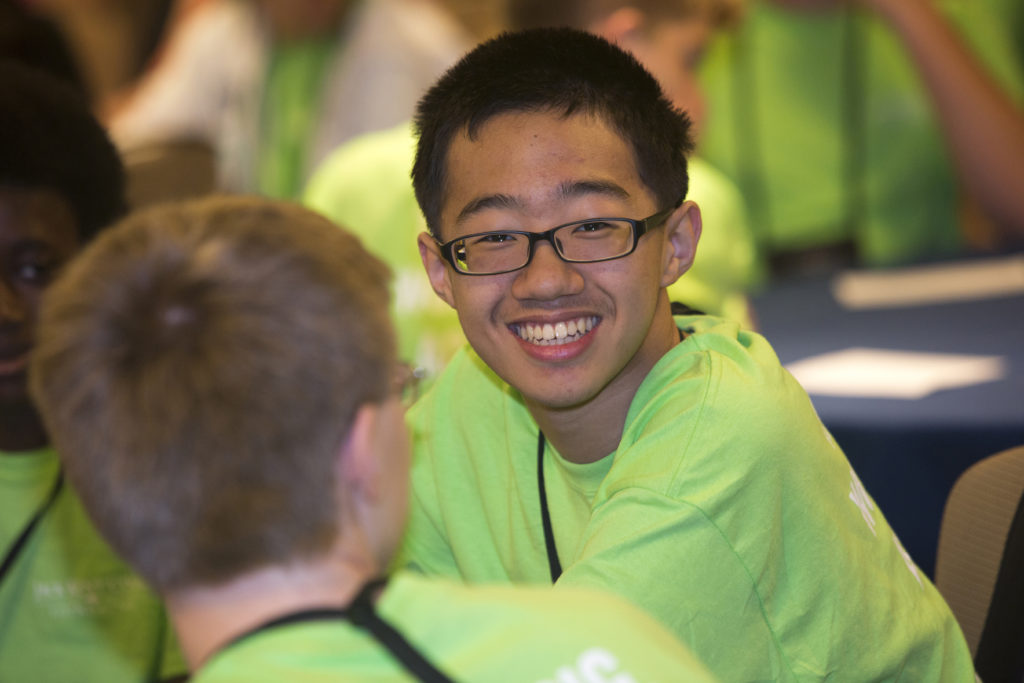
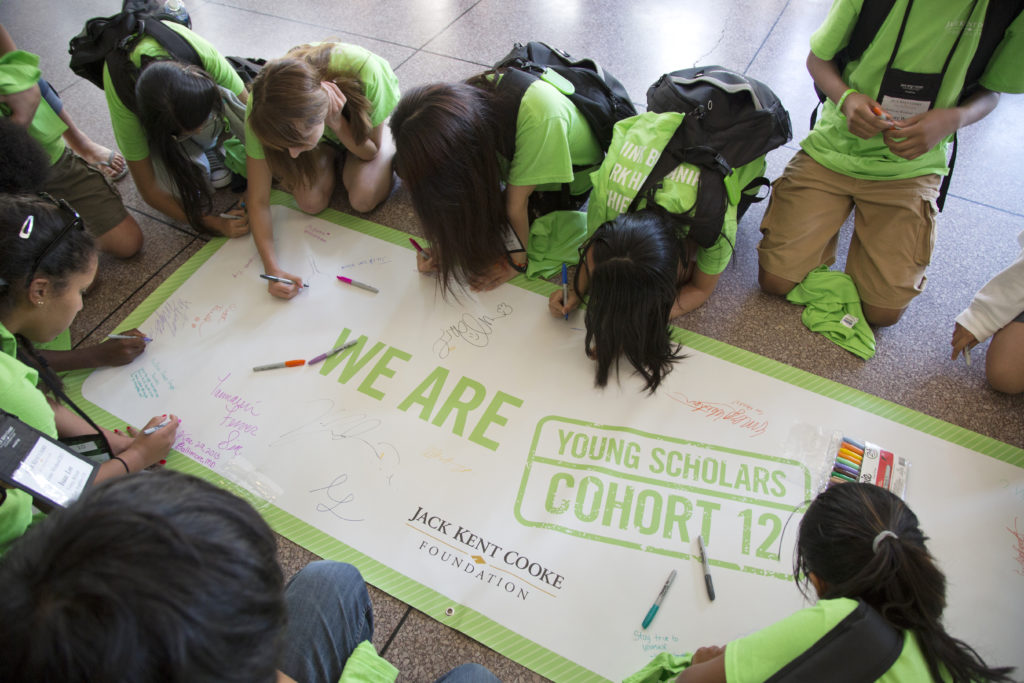
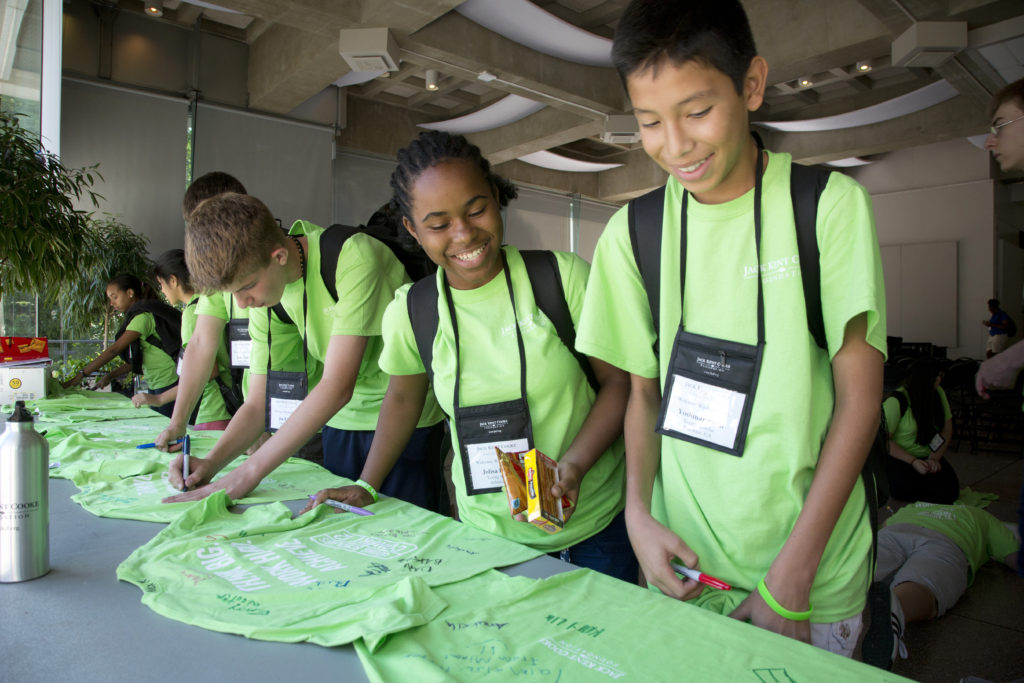
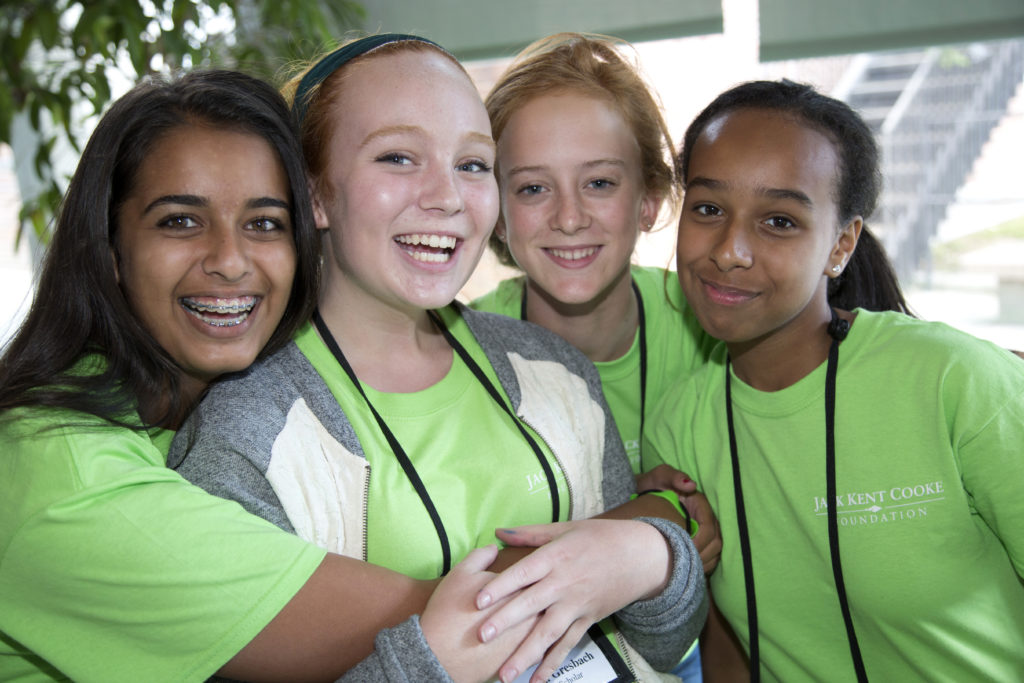
Contribute to the World
Cooke Scholars contribute to the world through significant achievements and everyday actions. We are here to support you so that you may discover the unique contributions – both big and small – that you can lead in order to make the world a better place. What do you want to accomplish this year? How can you use your efforts and talents to benefit those you care about? What big idea will you persevere to realize? What problem will you commit yourself to solving no matter how long it takes? What will be your legacy? To contribute to the world, you have the responsibility to:
- Think big; start today. Participate purposefully in the goal-setting exercises with your educational adviser to define clear goals and the concrete action steps that you control to achieve progress. It’s okay to start small so long as you get started.
- “Do better than your supposed best.” These are the words Jack Kent Cooke messaged to his football team before they went on to win the Super Bowl. For you, this means putting forward your greatest efforts to learn and grow with each class, each semester, each year. Take risks that allow you to be your very best self so that you may contribute.
- Identify the values, attributes, qualities, and skills that you can bring to pursuing your footprint in the world. Figure out your strengths and build on them. Determine your areas for growth and pursue improvements. Let go of your indefatigable weaknesses with the acceptance that you don’t need to be perfect to have purpose.
- Pay it forward. You have been given an exceptional opportunity as a Young Scholar that positions you to be able to help others, now and far into the future. Do something.
The Young Scholars Program and your educational adviser can support you to contribute to the world in a number of different ways:
- Use your ILP to support the action steps you might want to take in contributing to the world.
- Use your summer experiences to create, explore and test out ideas.
- Use your hangouts to talk with peers about your ideas and efforts, ask them for advice, and perhaps even pair up with scholars to accomplish your vision.
• Use your conversations with your educational adviser as a way to expand and reflect on your plans.

Putting it All Together
Your educational adviser is excited to work with you to take the critical actions necessary to reach your Think Big goals. The following are examples of materials you’ll use in your work together.
FOUR-YEAR PLAN
Reference the images below to help design your four-year plan, or print them out using the downloadable PDF of this handbook.
Long term vision for myself:
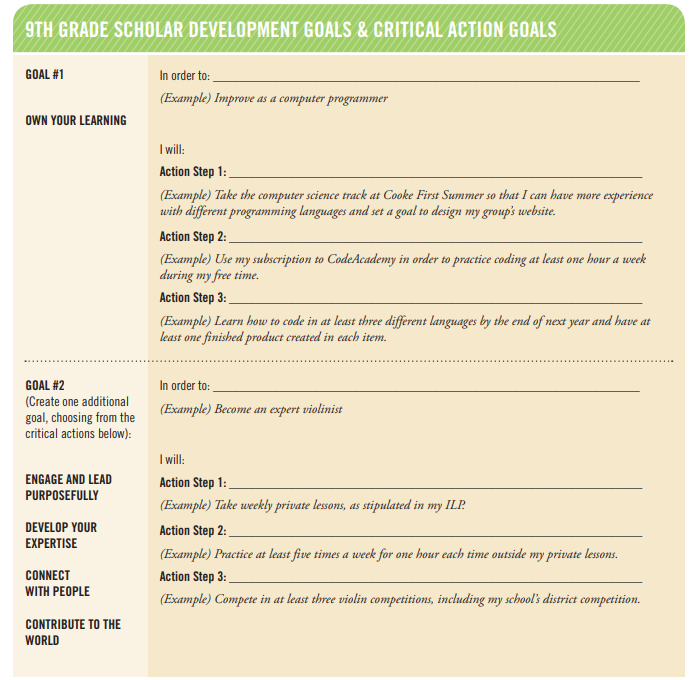
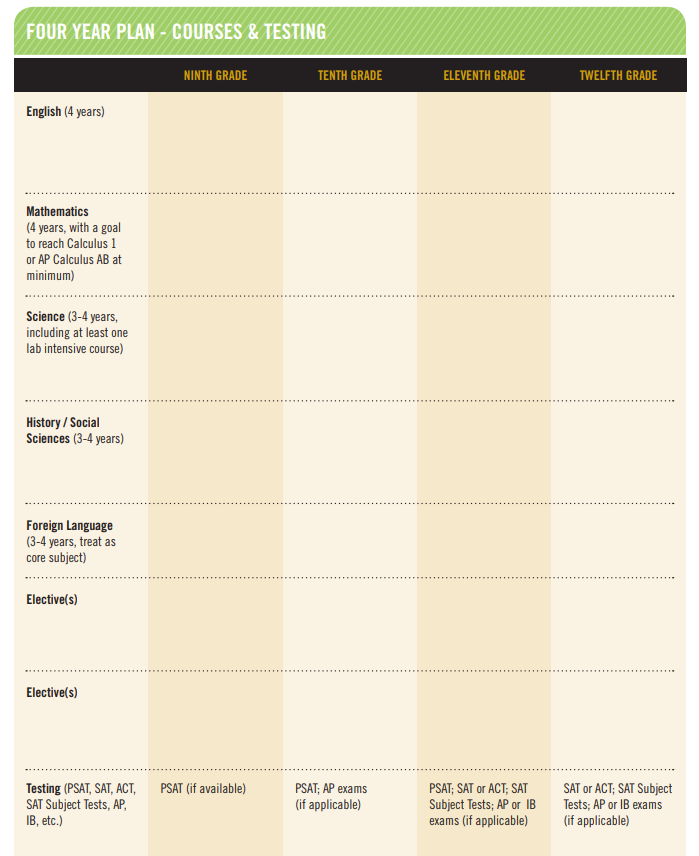
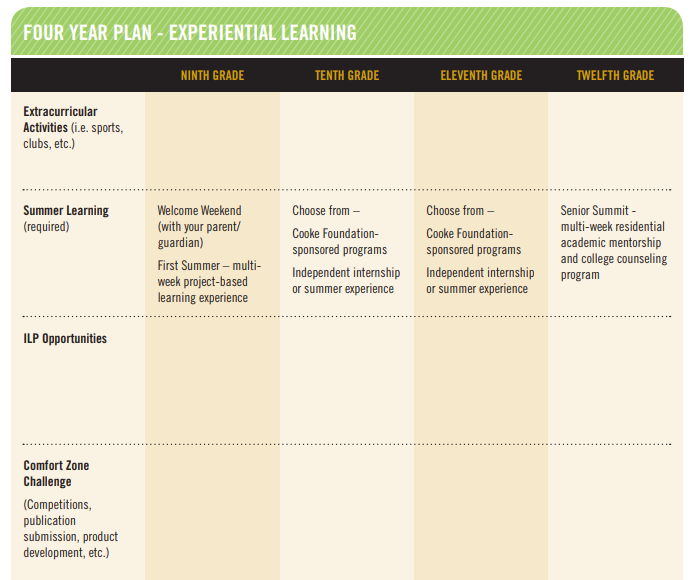
First-Year Timeline
FALL (SEPTEMBER – NOVEMBER)
- Return acceptance materials by mid-October
- Begin communicating regularly with your educational adviser to build a relationship, discuss academic and extracurricular interests, and develop your ILP and goals for next year
- Meet your educational adviser in person as he/she visits your home, school, and community. Your educational adviser will seek to know you and your family to better understand you and your needs (educational enrichment activities, extracurricular activities, passions, intellectual curiosities, etc.)
- Collaborate with your educational adviser to assess your high school options and prepare to apply to public, private or other schools, if applicable
- Discuss taking the SAT or other necessary standardized tests with your educational adviser
- Attend at least one online hangout conducted by the Young Scholars Program
WINTER (DECEMBER – FEBRUARY)
- Submit mid-year grades to the Cooke Foundation by the end of January
- Begin conversations with your educational adviser about Cooke summer program expectations and opportunities
- Work with your educational adviser to develop your time management and study skills to be high-school ready
- Explore your interests and take positive risks. Join a club, start an organization, lead actions aligned with your college and career interests
- Collaborate with your educational adviser about your high school course selection and draft your four-year plan
- Attend online hangouts conducted by the Young Scholars Program
SPRING (MARCH – MAY)
- Complete summer program forms and work with Cooke Foundation staff to coordinate travel arrangements for Welcome Weekend and First Summer
- Submit updated financial information to the Cooke Foundation when requested
- Work closely with your educational adviser and family to finalize your ILP, which goes into effect on June 1 and lasts until the end of May the following year
- Finalize your high school selection and freshman courses, and add details to your four-year plan
- Attend online hangouts conducted by the Young Scholars Program
SUMMER (JUNE – AUGUST)
- Review your ILP letter, which outlines your goals and the educational opportunities and resources the Cooke Foundation will support from June 1 – May 31, discussing the services and vendors with your educational adviser
- Begin coordinating payment for ILP opportunities with your educational adviser for when financial support begins in June
- Submit year-end grades to the Cooke Foundation by the end of June
- Attend the Cooke Foundation Welcome Weekend and First Summer (One parent/guardian is invited and strongly encouraged to attend Welcome Weekend, with travel and lodging provided by the Cooke Foundation)
- Attend online hangouts conducted by the Young Scholars Program
Renew Your Scholarship
Each year we take into consideration four factors when determining your scholarship renewal.
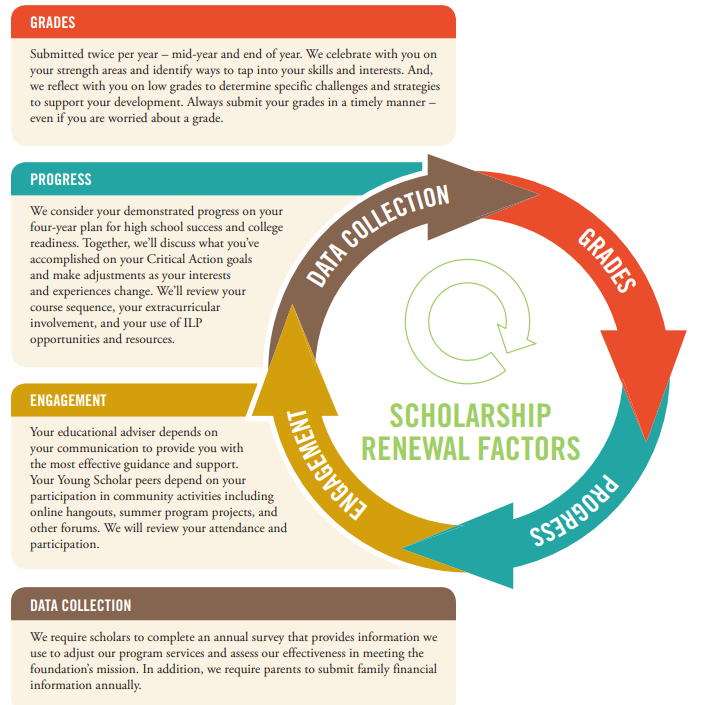
Conduct & Disciplinary Policy
As a Young Scholar, you are a representative of the Cooke Foundation, which means you should always act with honesty and personal integrity. We expect scholars to be strong in character and leadership, show concern for their communities, maintain a good disciplinary record, and work cooperatively with Young Scholars Program staff.
Scholars are to meet the responsibilities as outlined in the Scholar Handbook and the signed Letter of Commitment. In the event that a scholar does not uphold her/his responsibilities, the Young Scholars Program may issue a verbal or written warning, place a scholar on probation (with or without suspension of funding), or remove a scholar from the program.
The foundation may withdraw scholarship support at any time if you are involved in conduct that is criminal, convicted of a crime, found by your school to have violated academic standards, or engaged in conduct that reflects negatively on the foundation. You must report any disciplinary actions or potential violations to your educational adviser immediately after they occur. Repeated or significant violations of scholar responsibilities will affect a student’s eligibility for a Cooke Foundation College Scholarship.
Please contact your educational adviser if you have questions or concerns about meeting your Cooke Scholar responsibilities.
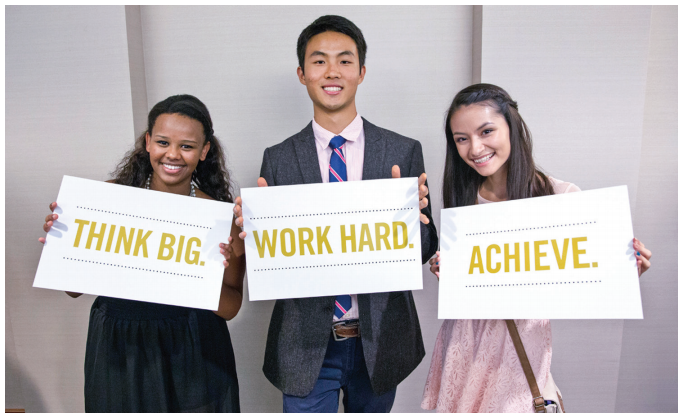
Common Questions
Q: How can I use the scholarship?
A: Beginning in ninth grade, scholars’ Individual Learning Plans authorize scholarship assistance to attend academic summer, after-school, or weekend programs; to participate in extracurricular activities; and, in some cases, to obtain tutoring or counseling. The Young Scholars Program may also fund the purchase of books, computers, or computer software. Some funds may be used toward high school tuition and fees, distance education classes, or college courses. Each Young Scholar’s scholarship is different because it is based on individual talents, interests, and family and community resources.
Q: Will the Young Scholars Program pay for all program and school expenses?
A: Probably not. All scholars must apply for financial aid whenever available from summer programs or independent and parochial schools. Your educational adviser can assist you with the financial aid process. Once you have received your financial aid notice, the Young Scholars Program will determine the Cooke Foundation’s contribution, if any, based on the relevance of the school or program to your educational goals, your family’s financial situation, your other recommended Individualized Learning Plan (ILP) services, and other pertinent information.
Q: When does funding for my ILP begin and end each year? A: Your ILP funding begins June 1 and ends May 31 each year. However, you must wait until all paperwork is approved for each vendor (music instructor, tutor, etc.) before beginning services each year. Your adviser will notify you when you can begin activities. Q: How do we get started on using ILP funding?
A: With any ILP funding items, the first step is to reach out to your educational adviser and/or assigned program coordinator. They will provide you the information we need in order to get the necessary paperwork to a vendor or to order an item. We must have certain signed paperwork from a vendor before any lessons or experiences can begin.
Q: What should I do if my summer program requires a deposit before ILP funding begins?
A: Speak with your educational adviser about any deposits or payments requested prior to June 1 for summer programs or school tuition. Your adviser will make arrangements with the requesting institution for these payments. Do not pay the school or program yourself unless you have discussed this with your educational adviser. We cannot reimburse you for any payments you make.
Q: How does a change in my family’s financial situation affect my scholarship?
A: Please let your educational adviser know if your family experiences a major increase or decrease in income from an employment change, death in the family, change in marital status, an investment or real estate transaction, or other circumstance. We may modify the ILP budget each year depending on family circumstances.
Q: What if I don’t use the funding for an educational service as planned?
A: We recognize that situations may occur that leave some money unspent in your ILP budget—maybe you received a last-minute scholarship or maybe your schedule changed and you cannot take lessons as planned. When that happens, let your adviser know so that he/she can report the budget decrease to our finance team.
Q: What if I need more lessons, tutoring, or counseling than we had planned?
A: Talk with your educational adviser if you anticipate an increase in your tutoring or counseling sessions or music lessons. Depending on the circumstances, we may be able to approve additional funding (more likely for tutoring and counseling than extracurricular activities). We will only consider increases that are approved in advance. Otherwise, your family will be responsible for the additional costs.
Q: When should I talk with my educational adviser about possible activities or resources to recommend in my ILP?
A: Each spring your adviser will work with you to develop your educational plan for the next year. You may want to discuss summer program plans even earlier in order to meet application deadlines. Advisers submit for review their ILP recommendations for each student by May 1. Please work with your adviser to ensure that all ILP opportunities are discussed and planned by the May 1 deadline. We do not add to ILPs throughout the year, except in rare circumstances, such as if you experience difficulty in a class and would benefit from tutoring.
Q: How can I earn a college scholarship from the Cooke Foundation?
A: In the senior year of high school, Young Scholars are eligible to apply for a Cooke College Scholarship. You will compete against your own track record, so work hard, keep your grades high, fulfill your Young Scholars responsibilities, and make yourself proud.
What About College?
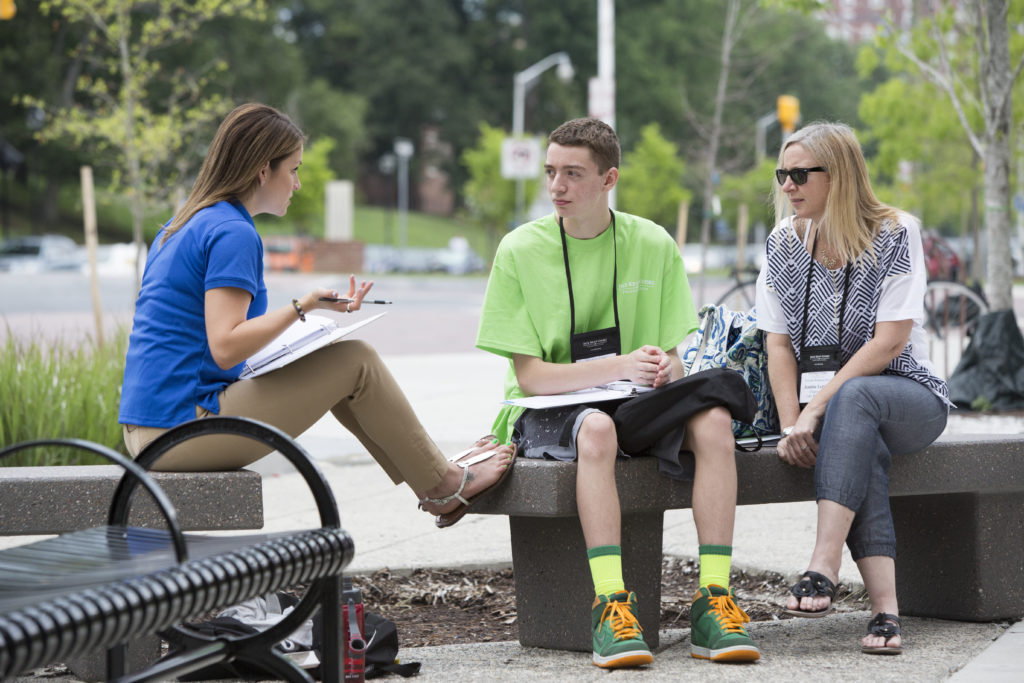
Educational Adviser Anya Keys works with a Cooke Young Scholar.
As you approach the midway point of your junior year, we will introduce you to the Cooke College Advising & Transition (CA&T) team who will support you in your college process. Our CA&T team focuses specifically on helping you find colleges that you’ll love and preparing you for all facets of the college application and selection process. You will continue to work with your Young Scholar educational adviser for high school academic advising, personal leadership development, and ILP needs.
Our CA&T team and Young Scholar advisers work closely together in what we call a “dual-advising model” to provide expert support as you prepare to apply to and attend topperforming colleges and universities.
What does this mean for you?
You will continue to have individual phone calls and emails with your Young Scholar educational adviser throughout junior year. Starting in the spring of eleventh grade, you will engage in community experiences with your assigned college adviser from the CA&T team. Community activities include monthly email newsletters, online hangouts, webinars, and in-person events with your fellow cohort members. You will attend Senior Summit during the summer before 12th grade. At that time, you will enter into a more direct advising relationship with your CA&T adviser. He/She will be a key resource as you navigate the critical milestones of the college application process during senior year. At the same time, the Young Scholars Program team will continue to support you by hosting community activities focused on personal development, decision-making, and well-being to help you celebrate your high school experience and prepare for the transition to college life.
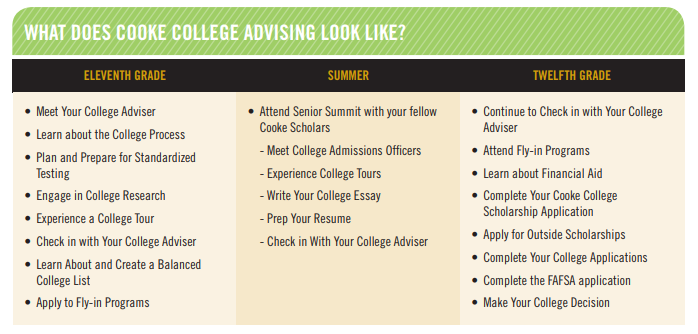
Young Scholars Program College Success
Upon high school completion, Young Scholars have gone on to attend over 110 different colleges and universities.
Here’s a list of the most popular colleges that have graduated Young Scholars (institutions listed have enrolled five or more Young Scholars).
Amherst College
Barnard College
Bates College
Brown University
Carnegie Mellon University
College of William & Mary
Columbia University
Cornell University
Dartmouth College
Duke University
Emory University
Georgia Institute of Technology
Harvard University
Johns Hopkins University
Massachusetts Institute of Technology
New York University
Northwestern University
Princeton University
Stanford University
Tufts University
University of Chicago
University of Illinois, Urbana-Champaign
University of Pennsylvania
University of Southern California
Vanderbilt University
Wellesley College
Williams College
Yale University
